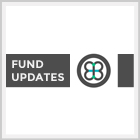Schengen under Pressure
Pfäffikon SZ, Switzerland – On June 14 1985 the Schengen Agreement was signed, which allowed for the free movement of persons. Belgium, Germany, France, Luxemburg and the Netherlands were the founding fathers of the original agreement. Fast forward to today and more than 26 countries are members of the Schengen Agreement, including non-EU countries such as Switzerland and Liechtenstein. The Schengen Agreement is, without a doubt, a huge success, but 30 years later it is under pressure.
Fort Europe
For some time now the peripheries of the European Union have been rumbling. The Schengen Agreement has turned the EU into an impregnable fortress which leads to increased tensions. The Italian prime minister Renzi has become infuriated and is threatening to grant refugees in his country temporary travel documents so they are free to travel within Europe. Brussels wants to accommodate only 24,000 refugees from Italy across the EU and will leave Italy with the lion’s share of the refugees. One must realize that there is no end in sight to this flood of refugees. Not to mention the illegal refugee influx that has been afflicting Spain for many years.
Border controls
It’s worth mentioning that the tightened border controls during the last G7 meeting in Schloss Elmau in Krün in Germany led to grim results. At the end of the G7 meeting the counter read 150 misdemeanours, 60 arrest warrants and 8600 residence permit violations. The conclusion is that criminals make a mockery out of the Schengen Agreement and consider themselves free as birds throughout the permitted area.
Credibility
Ironically, during the G7 meeting, President Obama from the US has lost his credibility regarding efforts towards creating a stable and safe Europe. After all, the European government leaders are trying to sell you that the EU is safe due to its union and its currency, which is not a currency but an agreement. Oddly enough they don’t realise that – according to Dr Helen Caldicott, recipient of the Nobel Peace Prize in 1985 – the foreign policy of Obama in the Ukraine in particular can be labelled as not credible, dangerous and provocative.
Soft
Europe seems to be on the eve of taking a step backwards in history. The peripheries of the EU are not becoming more stable, moreover the European power bloc has forgotten part of its history surrounding the liberation in mid 1945. Meanwhile Obama is trying to provoke a conflict with Russia on European territory. The current European leaders apparently don’t realise that Putin could be considered too soft by the Russians. In any case, freedom and security are much more important than money. At some point it will be realised that writing off the Greek sovereign debt is a wise decision at the current juncture. The Schengen Agreement has worked amazingly well over the last three decades but it is, unfortunately, no longer self-evident.
It remains for me to wish you a good weekend.
Jan Dwarshuis is a senior asset manager at Thirteen Asset Management AG, where he is responsible for the Thirteen Diversified Fund. Dwarshuis writes his columns in a personal capacity and is not paid for them. Nor is he paying for his columns to be placed. Professionally, he holds positions in major European, American and Russian stock funds. The information in his columns is not intended as professional investment advice or a recommendation to make certain investments. At the time of writing, he has no position in the above shares and has no intention of doing so in the next 72 hours.





